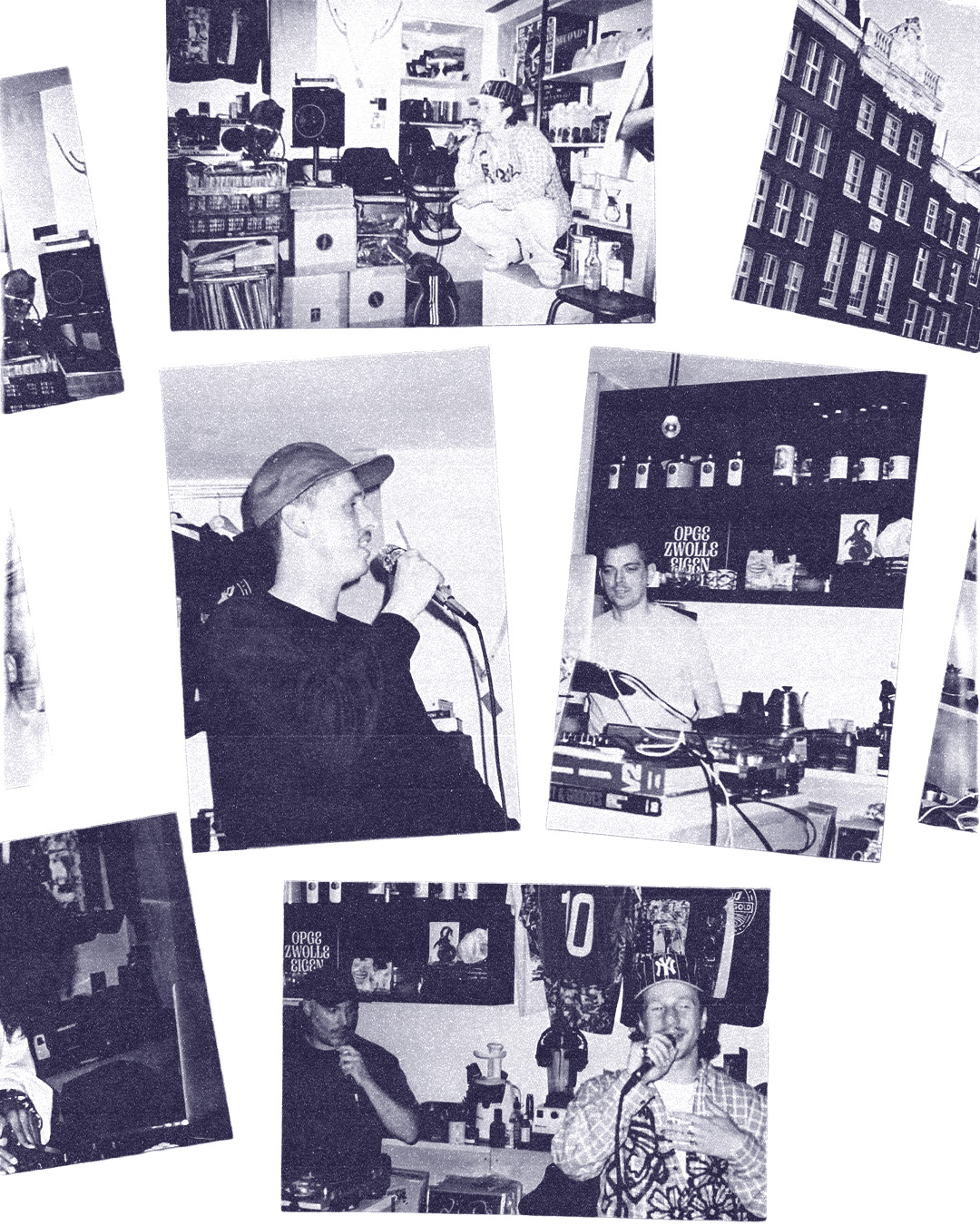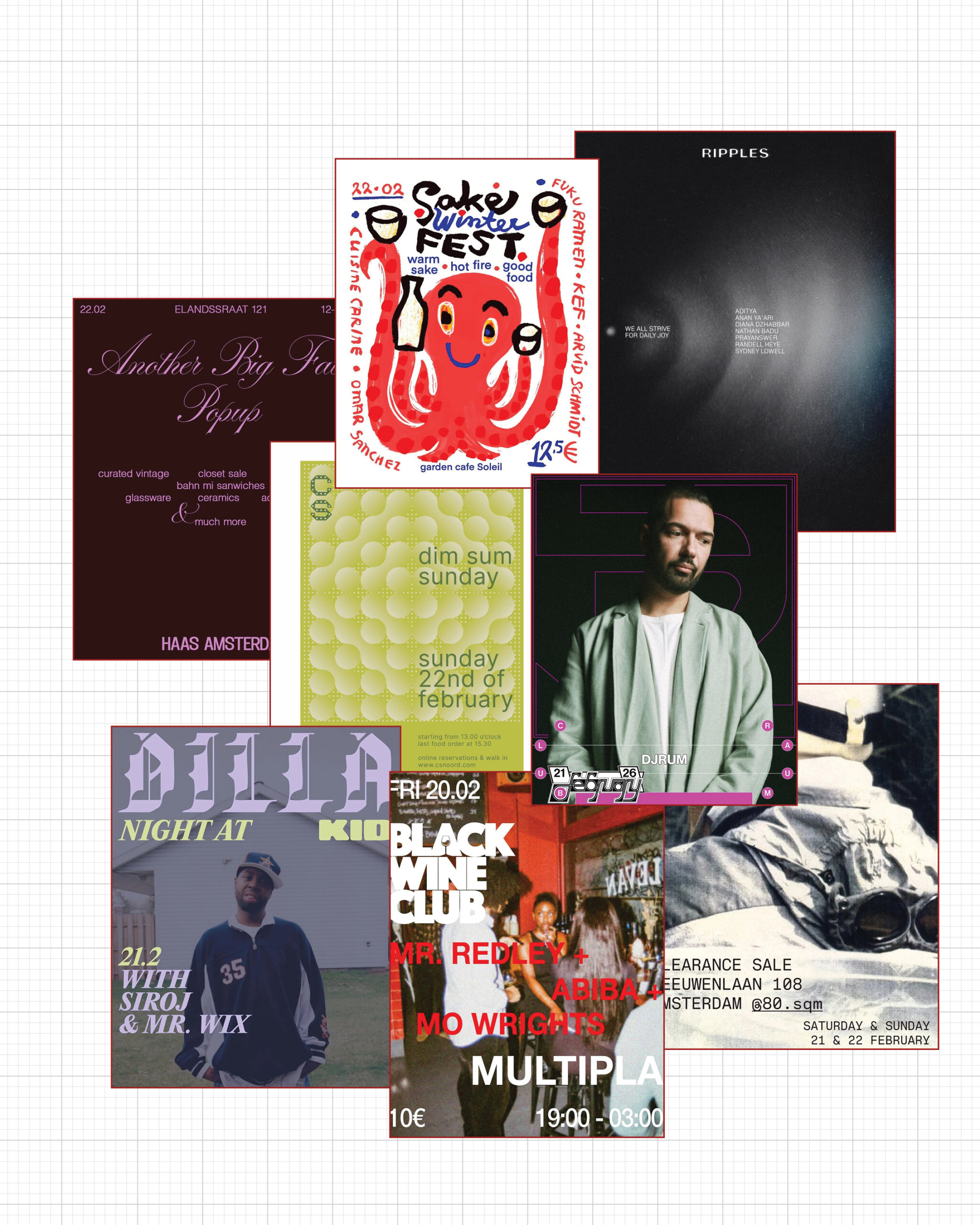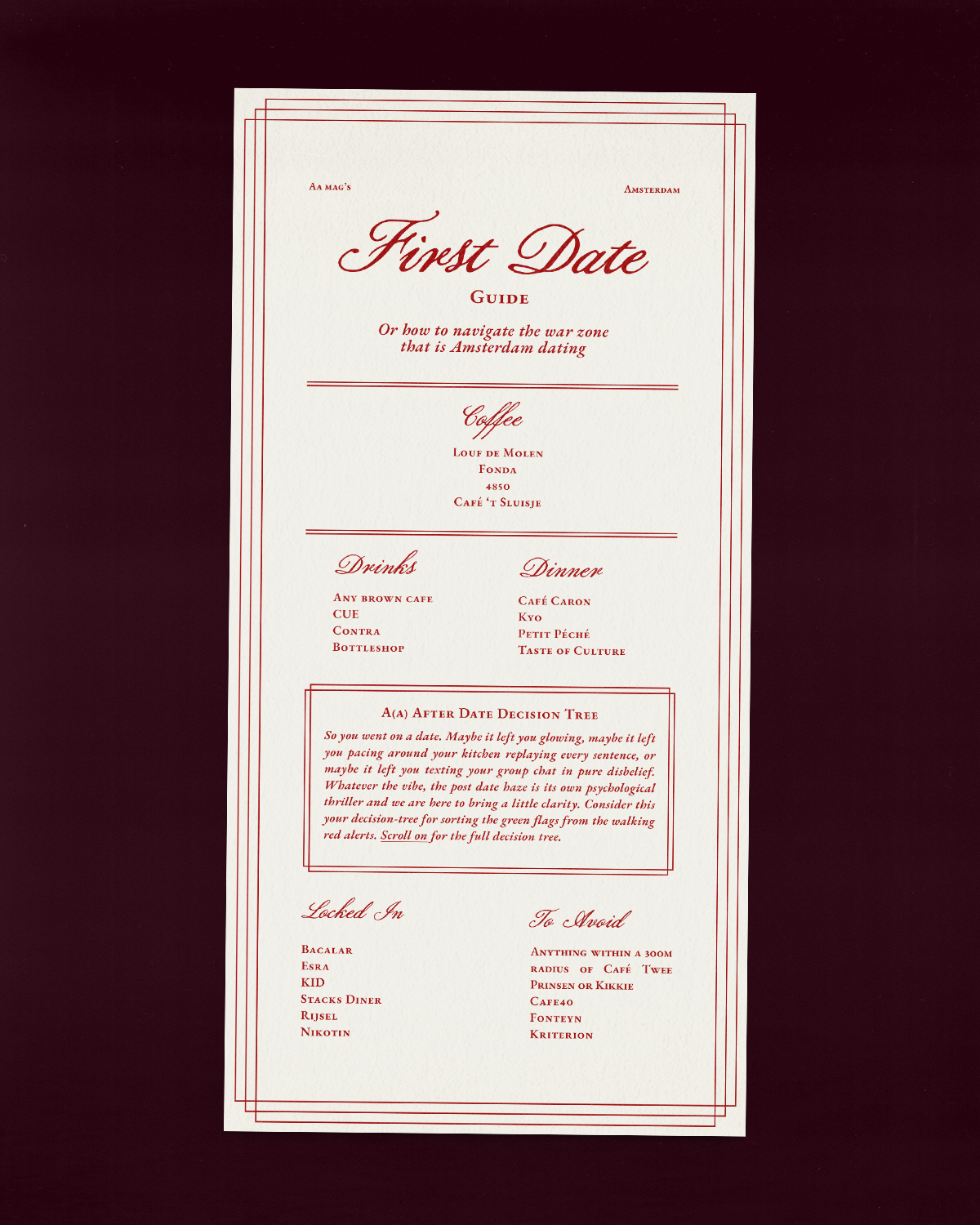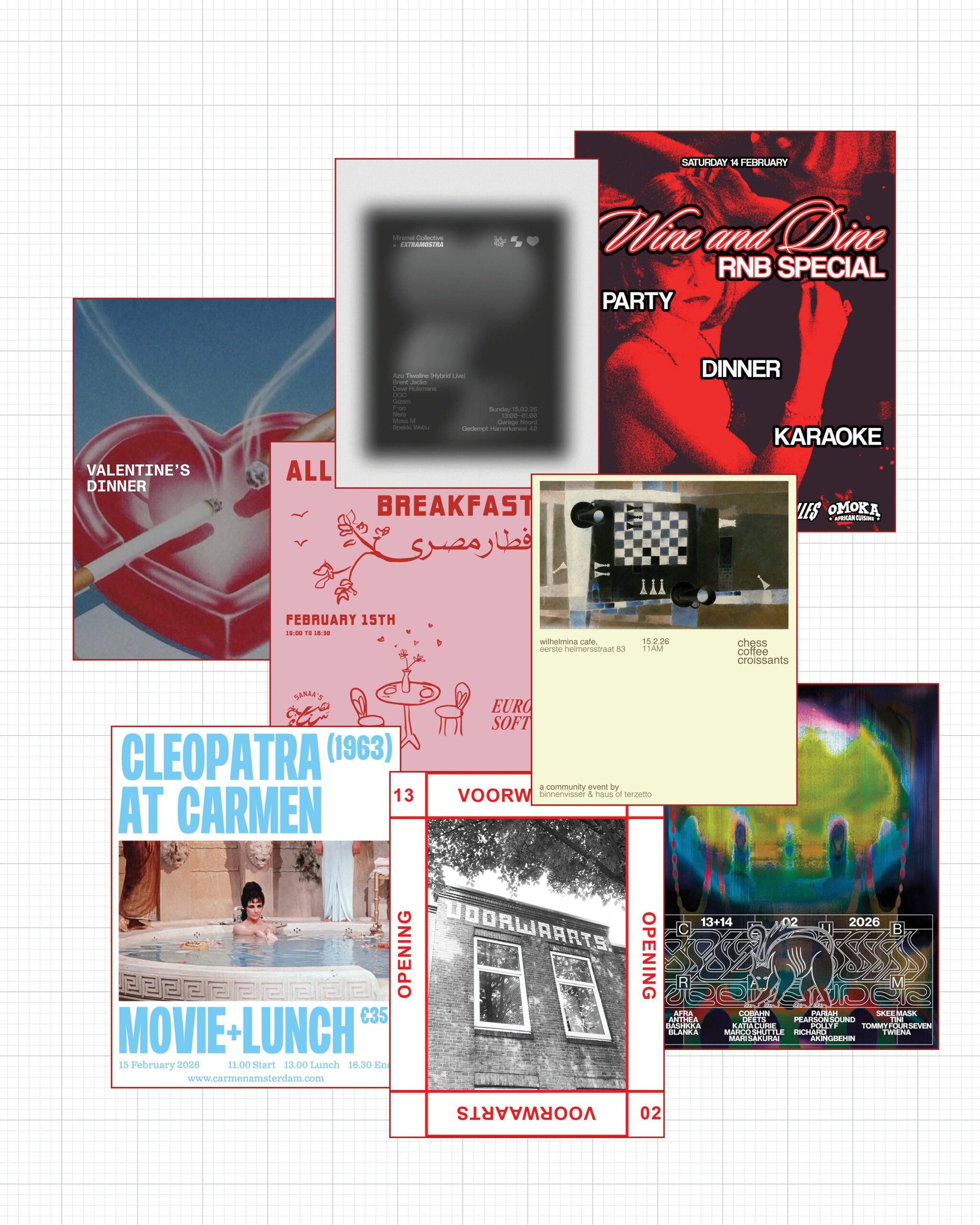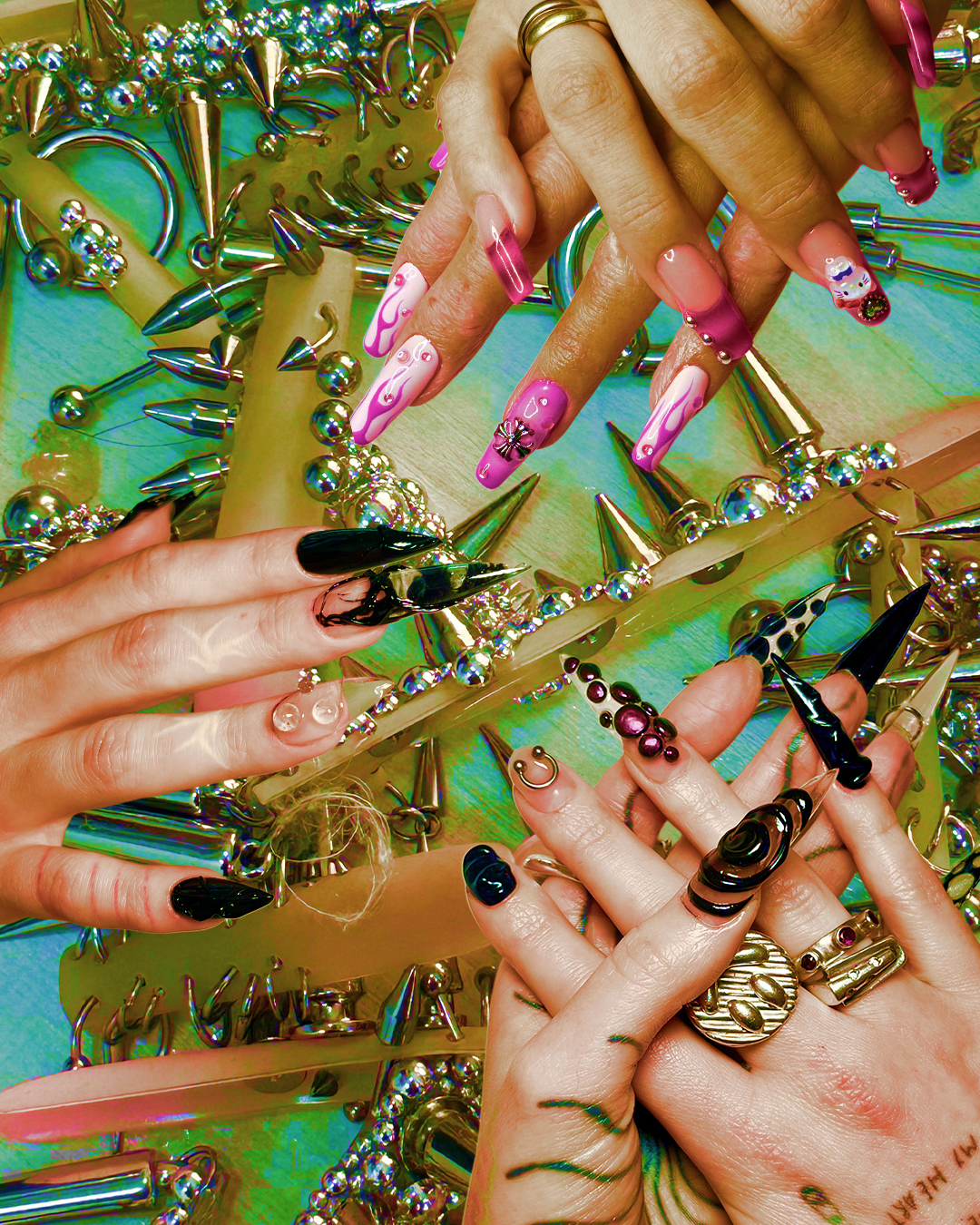“Time is the biggest enemy,” says Danny Veekens, reflecting on the early days of Rucksack Records, his independent Amsterdam-based label. “There’s never enough of it compared to the number of ideas you have, so you need to act practically if you want those ideas to come to life.”
Born on the precipice of COVID-19, Rucksack Records emerged in a moment when much of the music world was shutting down. For Danny, the lockdowns offered a strange kind of freedom: space to experiment, refine the label’s voice, and carve out an identity in a saturated industry. The result is a headstrong label with a sound that fuses psychedelic hip-hop and jazz, and a community that prizes authenticity over hype.
Danny is a journalist-turned-tastemaker who has been spotting hidden gems on the fringes of hip-hop for nearly two decades. His eye for talent and ear for the experimental go back to his high school days when his passion for boom bap beats and underground hip-hop pushed him to start his first blog, bootlegging album downloads. It was a risky venture. He collected more than one warning from anti-piracy officers, but it also gave him a network of like-minded enthusiasts and his first taste of building a platform.
That platform became The Find Magazine, a print project dedicated to jazz-infused hip-hop that grew into a respected publication over 13 years. It was here that Danny honed his DIY ethos, built a global community of artists and listeners, and planted the first seeds of what would eventually become Rucksack Records.
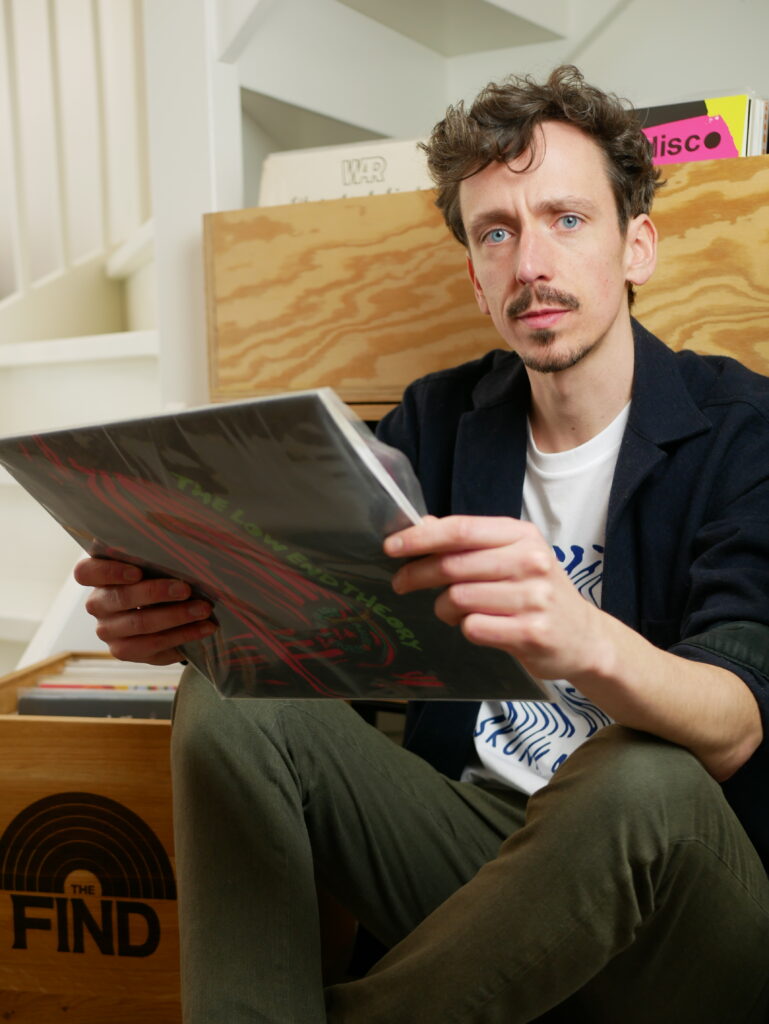
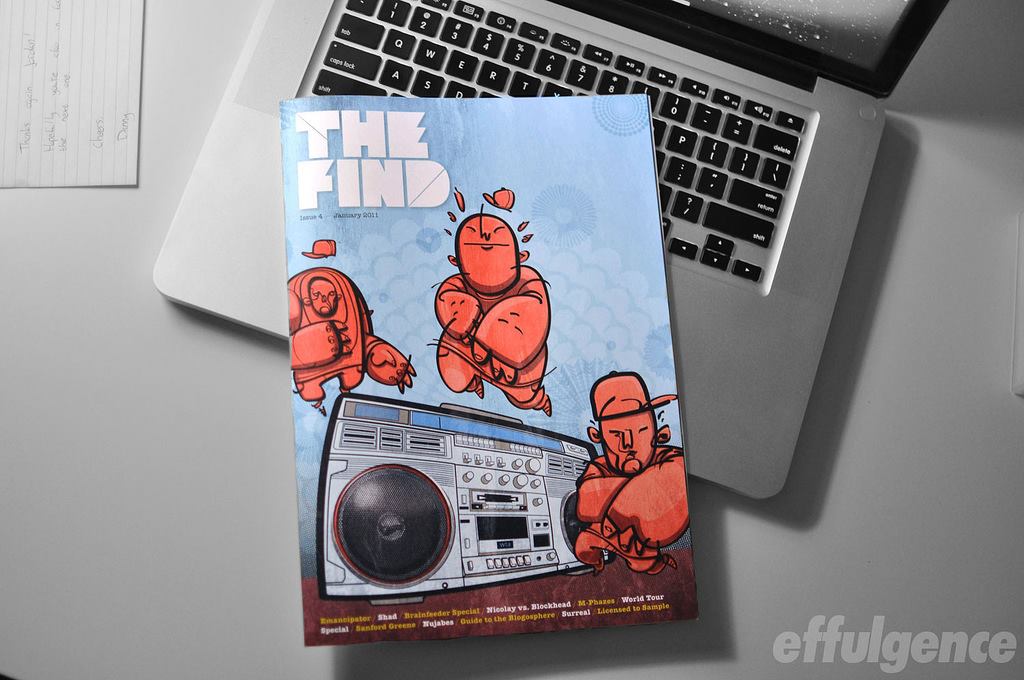
Commercial vs Niche Community
“It’s more about the authenticity of the craft than the demands of the market.”
In today’s music economy, commercial success often dictates recognition, but Danny insists on keeping Rucksack Records small by design. “Our sound is a micro-niche,” he says. “That’s what sets Rucksack Records apart, allowing the label to stay grounded for the long haul.” Rather than chasing numbers, the label’s focus is on creating sustainability for its artists. As he puts it, “It’s more about the authenticity of the craft than the demands of the market.”
What keeps the label going is its ecosystem of hip-hop enthusiasts, more so, a loyal audience who know what they like, and who allow artists to keep creating on their own terms. For Veekens, maintaining trust means taking responsibility for both sides of the equation. With artists, that means transparency around splits, finances, and distribution. With listeners, it also means affordable records and accessibility.
That sense of community is perhaps most visible at live events. Listening parties and gigs at Black Gold—a vinyl café and longtime supporter of the label—regularly bring together listeners, artists, and even coffee lovers under one roof. It’s this eclectic mix that inspired the store’s name.
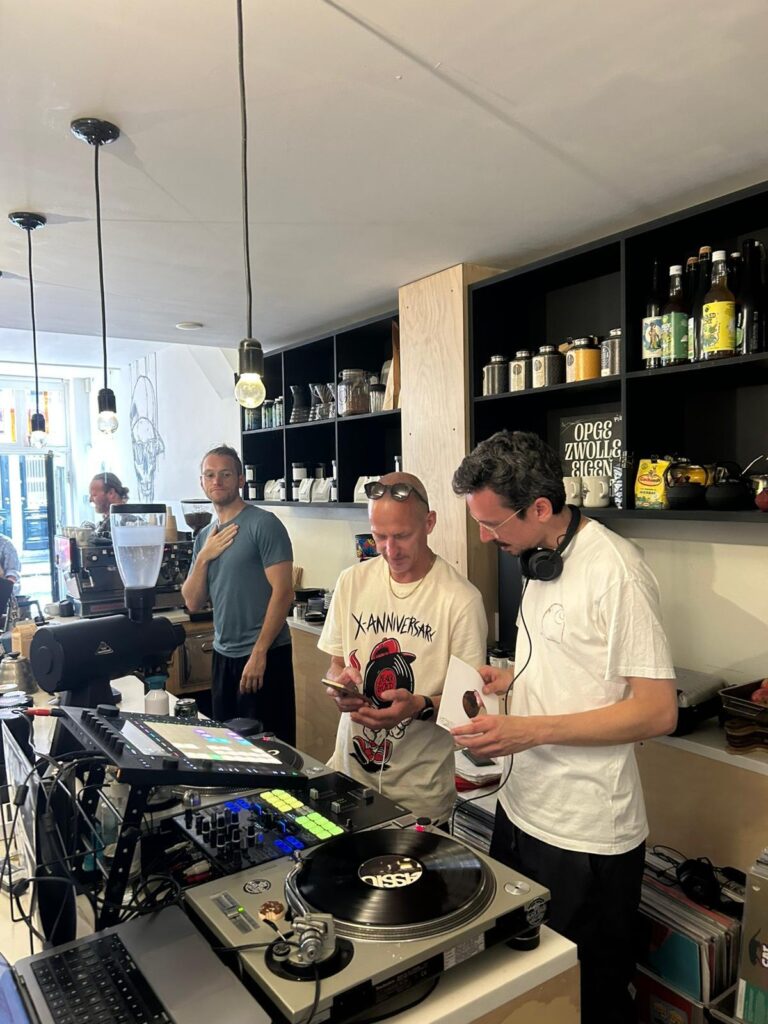
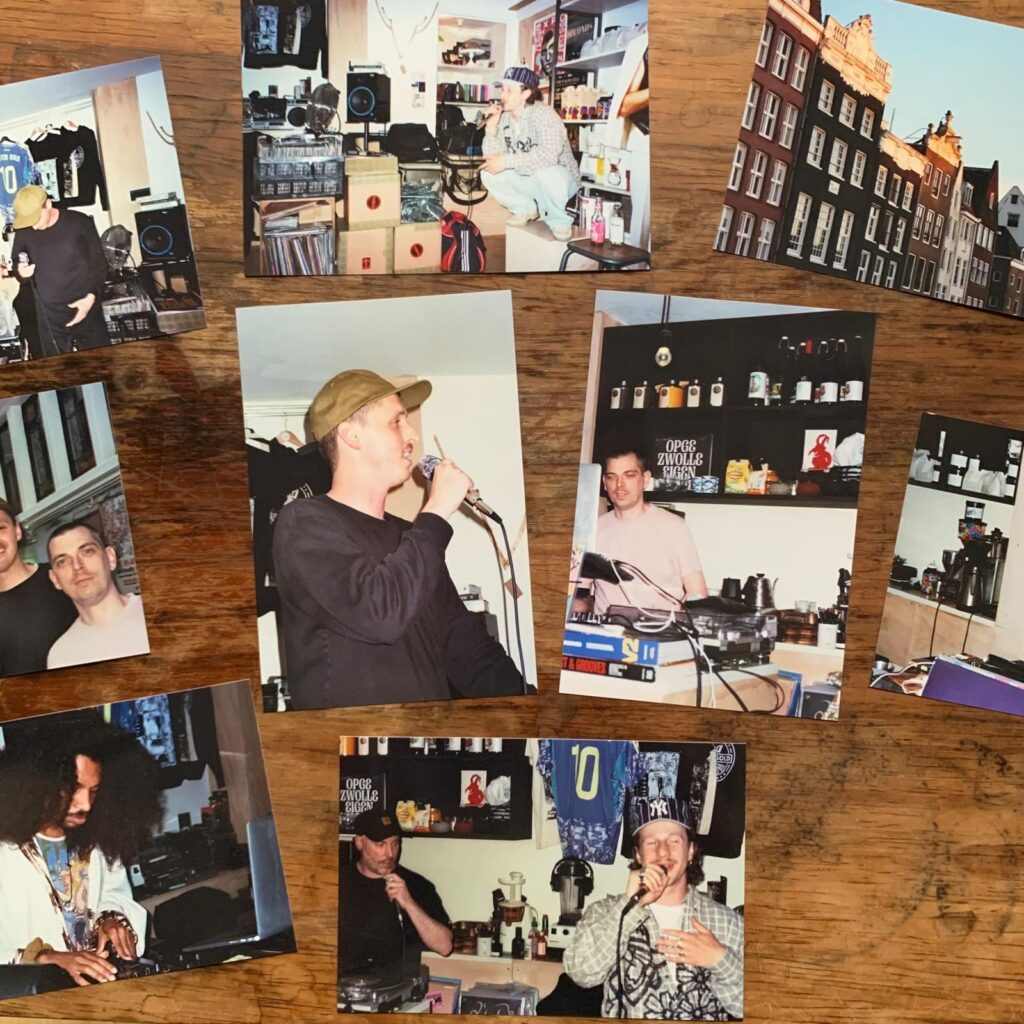
Fun fact: “Rucksack” is a nod to backpack rap, which is an underground style of 90s hip-hop that was rooted in politically charged lyrics, coaxed by jazzy influence (I.e., A Tribe Called Quest, People Under the Stairs). ‘Backpack’ quite literally derives from fans of the genre who carried record-filled backpacks to such shows. Additionally, “Rucksack” ran as an inside joke in reference to Danny’s hometown, Beugen. The town close to the German border uses the German-sounding “rucksack” as a playful twist in an industry often defined by rigidity. His mantra sums it up: “Mavericks will make heads nod and jaws drop,” he says, pointing to the label’s artists who continue to challenge boundaries with their one-of-a-kind sound.
Analog vs Digital
“Relying on big tech as your only benefactor is unpredictable. Tomorrow, a streaming service might collapse, and your entire business model is tanked.”
For Danny, vinyl isn’t a retro novelty — it’s the backbone of Rucksack Records. “Vinyl is our primary form of media,” he explains. The label’s focus is on crafting the physical product with care; streaming is treated as a byproduct rather than the main motivation. That choice is partly practical. “Relying on big tech as your only benefactor is unpredictable. Tomorrow, a streaming service might collapse, and your entire business model is tanked.”
Instead, Rucksack Records leans into a DIY approach: building relationships, hosting events, and using platforms like Bandcamp, which Danny describes as “an ecosystem for people who love music” and one of the few systems that has proven consistent over time.
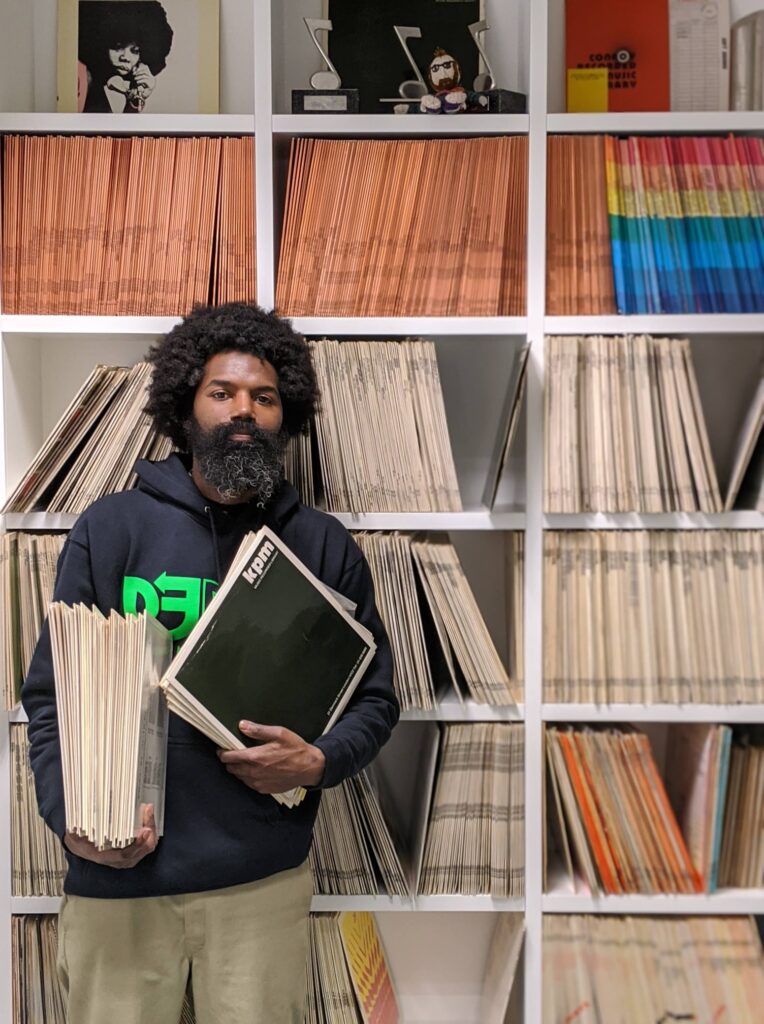
When it comes to navigating the digital era, Danny urges artists to resist rushing into trends without reflecting on the why. Too often, he says, musicians are in a pursuit of numbers, algorithms, and virality at the expense of their art. Danny goes on to explain how structures such as Spotify can create tension between the artist and their music, “when the chase for success and numbers trumps true artistry, that’s when artists lose meaning in the music that they make,” he says. “That’s when they’re prompted to take a step back to ask themselves, ‘Why do I do it?’ The same goes for Instagram, where the major drive behind a post is its like count and whether it is cool enough to post. The drive for numbers is prone to burning you out.”
Trial and error were inevitable when Danny launched the label. Balancing limited budgets with ambitious ideas, it took time for him to find his footing. His model centered on releasing music primarily on vinyl, but some days the resources simply weren’t there. At times, the label had to scale back, skipping vinyl runs and relying on streaming instead.
In their first year (2020), they came out with their very first vinyl release: James Crown 45 by Kid Sundance, in collaboration with Dutch Gems. Their first digital release was by a London-based Greek-born producer, Bobby Obsy, with an EP album titled Robo Boy, and their first full-length LP was Monolith by Russian producer LTF. Subsequent albums followed suit in their meticulous dedication to analog music and the preservation of this physical medium in our rapidly changing digital space.
Distribution & Transparency
When probed about the qualities he felt were missing from the current music scene, two things came to mind: distribution and transparency.
Unlike larger countries such as France or the UK, the Netherlands lacks strong networks that support niche genres like underground hip-hop. The result, he explains, is that many touring artists tend to bypass Amsterdam altogether, leaving fewer platforms for local acts to perform.
Just as critical would be the issue of fairness in transparency. While many independent labels within the scene partake in equal distribution of revenues with their artists (50/50 splits being common), others often cling to opaque and exploitative models. Danny points to Berlin’s Habibi Funk as an example of a label that gets it right in practicing radical transparency and setting a standard he hopes more of the industry would follow.
The Berlin-based label goes beyond reissuing forgotten ensembles of the Middle East North African (MENA) region. It has built a reputation for itself in upholding radical transparency. Profit splits are made public, artists or their families receive 50% of all revenues, and licensing agreements are temporary so that ownership eventually reverts to the creators. Just as important is the dedication to contextual storytelling, of which the label has focused its efforts in packaging records with liner notes and background materials that honour the music’s origins. The combination of fairness, transparency, and ode to culture sets a new benchmark for independent labels. For Danny, it’s a model worth emulating, and proof that ethicality and niche artistry can coexist.
Advice for Emerging Artists:
This section is dedicated to the newcomers of hip-hop and the artists that are just trying to get started.
When asked to give his advice to emerging artists, Danny was quick to echo a familiar ethos from Rick Rubin: to always stay true to yourself. “Once you get really good at what you do, you’re going to attract your own crowd,” he explains.
In Danny’s experience, ambition is always important, but patience is necessary. Start small, be kind, reach out, and slowly grow your circle. These four steps are the building blocks that form a strong foundation for your lasting career. Overnight success, he warns, is fleeting. The real challenge is to build “small sustainable steps” and to accept that losses that come along the way are part of the package deal.
Approaching labels requires care and consideration. Danny urges artists to do their homework before reaching out: understand what the label is looking for, know its sound, and make sure that your vision aligns. “This shows the label that you deeply care about making the connection,” he says. And preparation matters too. Have a think through your previous work, almost like a musical CV. First comes your tracks, secondly the context of your release, followed by your credentials, and the gigs that have shaped you as an artist.
Danny’s tips for success:
- Be undeniably you.
- Start small, take baby steps.
- Build your repertoire and your experience.
- Get to know a label.
- Reach out to said label (and give it everything you’ve got).
This attention to artistry is what drew Danny to Singaporean rapper Mary Sue, the first Asian artist signed to the record label. “It was one of those rare occasions where you listen to an album and it immediately stands out to you,” he recalls, “Very conceptual, and very fluid in style… every time you listen to it, you find something new.” Mary Sue’s exploratory sound not only expanded the label’s roster but also confirmed Danny’s openness to talent beyond Europe. With demos from Japan already under review, Rucksack’s network is steadily stretching across continents, while staying true to its underground ethos.
The Future of Rucksack Records
“Where do you see Rucksack Records in 10 years?” was a formidable question that I had pegged, and Danny didn’t leave any room for hesitation. He hopes it will evolve into a hybrid between a record label and an editorial publisher. For him, the future lies not just in releasing music but in telling stories behind it. “I really believe in the power of music journalism and storytelling, as opposed to continuously screaming ‘New single out now’ into the void of social media,” he says. That vision includes releasing magazines, running newsletters, hosting events, and even producing documentaries; all in service of giving independent artists deeper platforms to share their craft. Some of those projects are already in motion, though Danny admits it is too early to reveal the details.
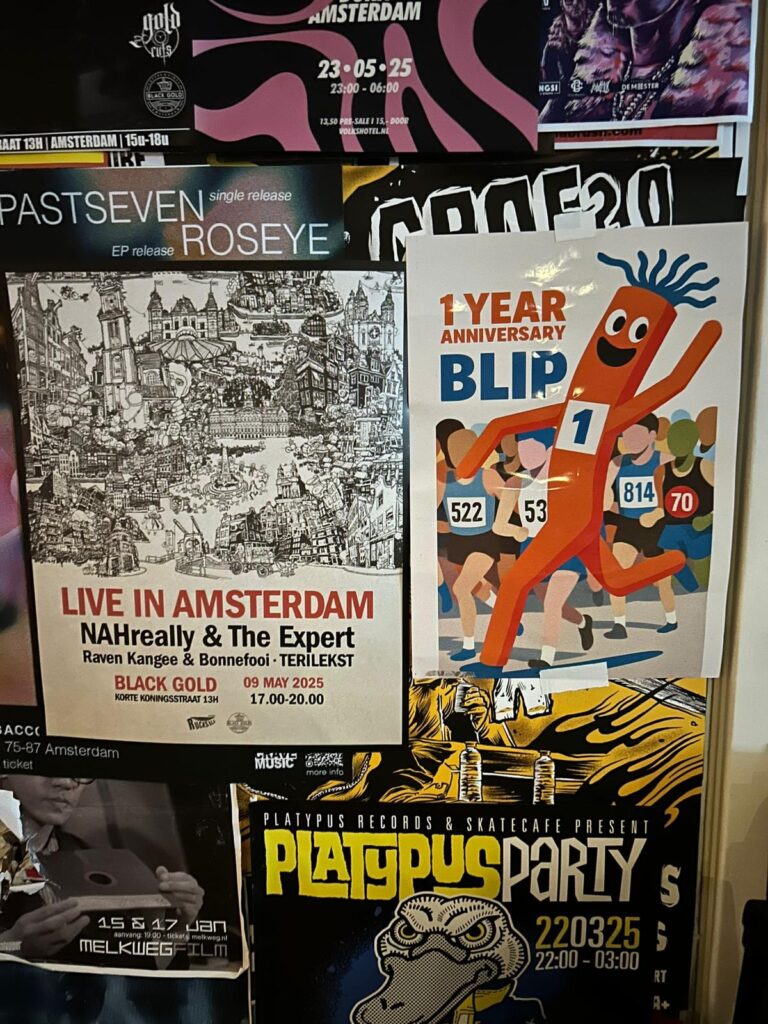
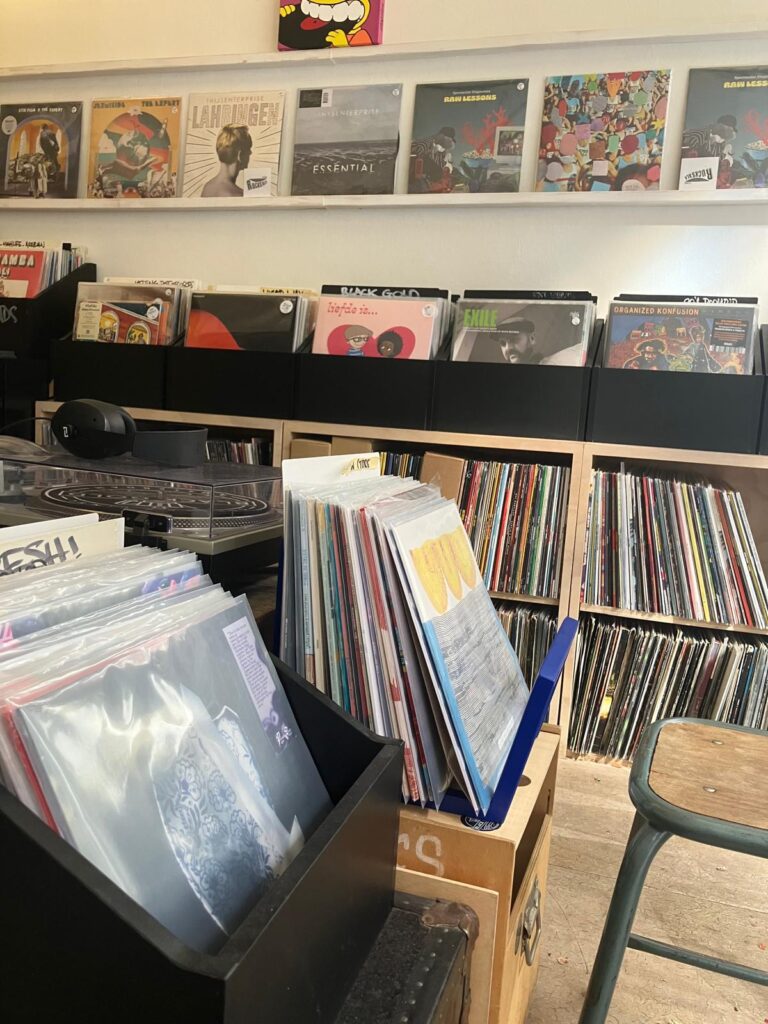
[Closing notes from Danny]
Thanks for sticking with us all the way to the end of this interview. I guess that means it was a good read – thanks to Ethel and Aa Magazine for that. I hope you like the music. If so, there’s much more to discover on the website and Bandcamp page of Rucksack Records.

